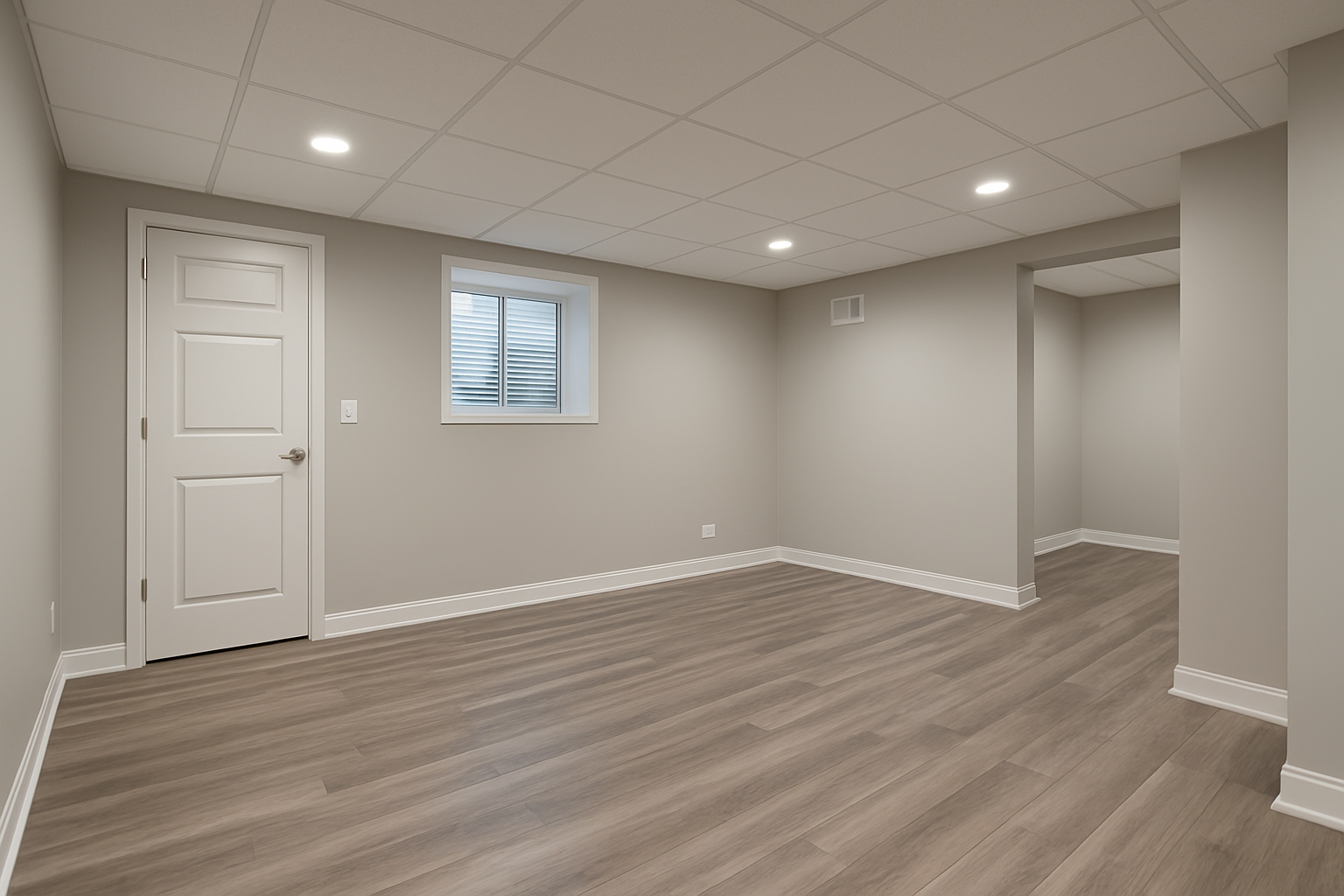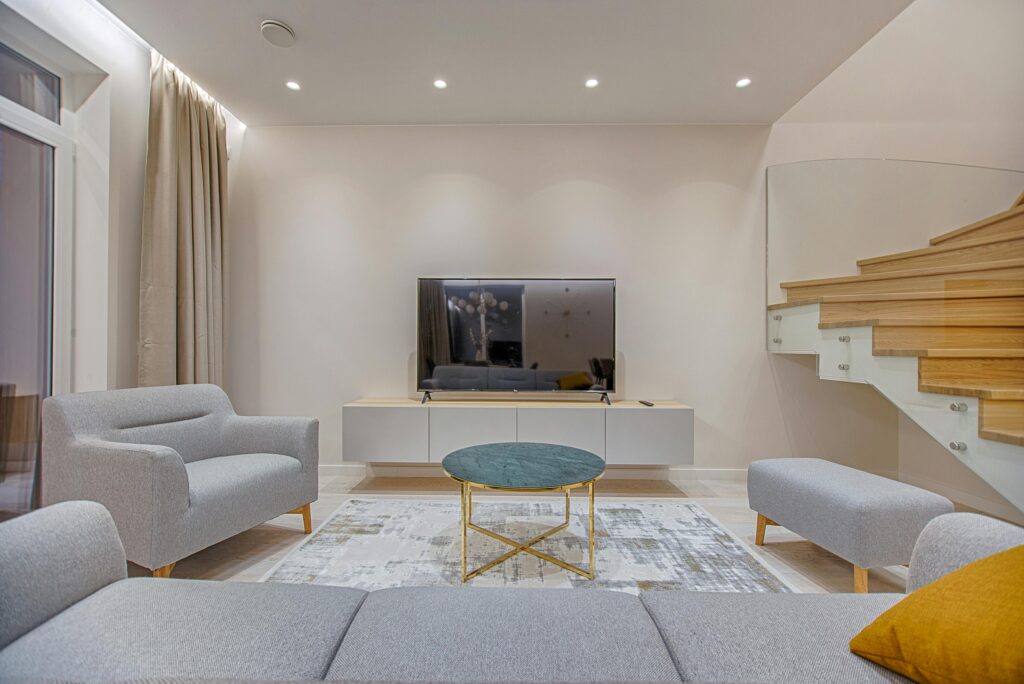We’ve helped countless homeowners in the Windy City turn their basements into stunning spaces. In this guide, we’ll walk you through the essential steps to prepare your basement for remodeling, with tips tailored for Chicago’s unique climate and building challenges.
Why Prepare Your Basement Properly?
Basement remodeling requires careful planning due to the city’s humid summers, freezing winters, and older housing stock. Preparing your basement ensures the project runs smoothly, stays within budget, and results in a durable, comfortable space. From addressing moisture issues to navigating local building codes, preparation sets the foundation for success. Let’s dive into the steps to get your basement remodel-ready.
Step 1: Assess Your Basement’s Current Condition
Before swinging a hammer, evaluate your basement’s current state. Chicago basements, especially in older homes in neighborhoods like Lincoln Park or Wicker Park, often face challenges like water seepage, poor insulation, or outdated electrical systems. Here’s what to check:
-
Moisture and Water Issues: Look for signs of water damage, such as damp walls, mold, or musty odors. Chicago’s proximity to Lake Michigan and heavy rainfall can lead to basement flooding, so identifying leaks or cracks in the foundation is critical.
-
Structural Integrity: Inspect for cracks in walls or floors, uneven surfaces, or signs of settling. A professional contractor can assess whether foundation repairs are needed.
-
Utilities and Systems: Check the condition of electrical wiring, plumbing, and HVAC systems. Many Chicago homes built before the 1980s may need updates to meet modern codes.
Pro Tip: Hire a licensed inspector familiar with Chicago’s building regulations to ensure your basement meets safety standards before remodeling begins.
Step 2: Address Moisture and Waterproofing
Moisture is the biggest enemy of a basement remodel, especially in Chicago’s climate. Unaddressed water issues can lead to mold, structural damage, and costly repairs. To prepare your basement:
-
Install a Sump Pump: If your basement is prone to flooding, a sump pump is a must. Consider a battery-backup system to protect against power outages during Chicago’s stormy seasons.
-
Seal Cracks: Use hydraulic cement or epoxy to seal cracks in walls or floors. For larger issues, consult a waterproofing specialist.
-
Improve Drainage: Ensure your home’s exterior drainage system, including gutters and downspouts, directs water away from the foundation. In Chicago, where heavy rain is common, proper grading is essential.
-
Add a Vapor Barrier: Install a vapor barrier on walls and floors to prevent moisture infiltration before adding drywall or flooring.
Tip: Chicago’s clay-heavy soil can trap water near foundations. Consider exterior waterproofing solutions, like French drains, for long-term protection.
Step 3: Plan Your Basement Layout and Purpose
Think about how you want to use your remodeled basement. Popular options in Chicago include:
-
Home Theaters: Perfect for cozy movie nights during harsh winters.
-
Guest Suites: Ideal for hosting visitors in a bustling city.
-
Home Offices: A quiet workspace for remote professionals.
-
Rental Units: Chicago’s rental market is strong, and a finished basement can generate extra income.
Sketch a rough layout, considering windows, support columns, and utility access points. Work with a professional designer to maximize space and comply with Chicago’s building codes, which may require egress windows for bedrooms or living spaces.
Step 4: Check Local Permits and Building Codes
Chicago has strict building codes, especially for basements used as living spaces. Before starting your remodel, contact the City of Chicago’s Department of Buildings to confirm permit requirements. Key considerations include:
-
Egress Windows: If your basement will include a bedroom, Chicago code requires an egress window for safety.
-
Electrical and Plumbing: Updates to wiring or plumbing must meet current standards. Hire licensed professionals to avoid fines or delays.
-
Insulation: Proper insulation is crucial for energy efficiency, especially given Chicago’s cold winters.
Working with a local contractor, like Basement Remodeling Chicago, ensures compliance with city regulations and streamlines the permit process.
Step 5: Clear Out and Clean the Space
Before construction begins, declutter and clean your basement. Remove furniture, boxes, and personal items to create a blank slate. This step also helps you spot hidden issues, like mold or pests, that may need addressing. Consider:
-
Donating or Recycling: Donate usable items to local Chicago charities, like Habitat for Humanity ReStore.
-
Professional Cleaning: If mold or mildew is present, hire a remediation expert to ensure a safe environment.
Step 6: Budget and Hire a Reliable Contractor
Set a realistic budget that accounts for Chicago’s higher labor and material costs. Include a contingency fund (10-20% of the total budget) for unexpected issues, like foundation repairs or code upgrades. When hiring a contractor:
-
Verify Credentials: Choose a licensed, insured contractor with experience in Chicago basement remodels.
-
Check Reviews: Look for testimonials from homeowners in areas like Evanston, Oak Park, or Logan Square.
-
Get Multiple Quotes: Compare estimates to ensure fair pricing without sacrificing quality.
At Basement Remodeling Chicago, our team specializes in turning Chicago basements into functional, beautiful spaces. We handle everything from waterproofing to custom finishes, ensuring your project is completed on time and within budget.
Step 7: Plan for Insulation and Ventilation
Chicago’s extreme weather demands proper insulation and ventilation to keep your basement comfortable year-round. Use foam board or spray foam insulation for walls, and ensure floors are insulated to prevent heat loss. Install a dehumidifier to maintain healthy humidity levels, especially during humid summers. If your remodel includes a bathroom or kitchen, proper ventilation is critical to prevent mold growth.
Step 8: Choose Durable Materials
Select materials that withstand Chicago’s climate and basement conditions:
-
Flooring: Opt for waterproof options like luxury vinyl plank or ceramic tile. Avoid carpet unless moisture issues are fully resolved.
-
Walls: Use mold-resistant drywall or cement board for added durability.
-
Lighting: Basements often lack natural light, so incorporate recessed lighting or LED fixtures for a bright, welcoming space.
Final Thoughts
Preparing your basement for remodeling is a critical step toward creating a functional, valuable addition to your Chicago home. By addressing moisture, planning your layout, securing permits, and hiring a trusted contractor, you’ll set the stage for a successful project. We’re here to guide you every step of the way, from initial planning to final finishes.
| Preparation Step | Why It Matters | Chicago-Specific Tip |
|---|---|---|
| Assess Moisture Issues | Prevents mold and structural damage during remodel. | Check for seepage, common in Chicago due to clay soil and heavy rain. |
| Install Waterproofing | Ensures a dry, durable basement for long-term use. | Consider a sump pump with battery backup for Chicago’s stormy seasons. |
| Check Building Codes | Avoids fines and ensures safety compliance. | Verify egress window requirements with Chicago’s Department of Buildings. |
| Plan Layout | Maximizes space and functionality. | Popular in Chicago: home theaters or rental units for extra income. |
| Choose Durable Materials | Ensures longevity in humid or cold conditions. | Use waterproof vinyl flooring to handle Chicago’s humidity. |



